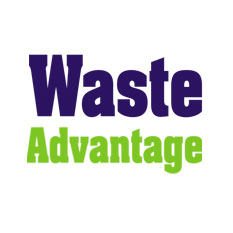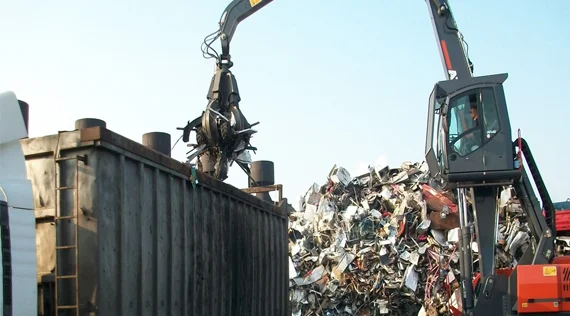Energizing Connections and Insights at the Federation of New York Conference & Trade Show
Waste & Recycling | 2025-06-18 00:09:04
Finally, he touched on the ongoing concern of how tariffs are going to affect the industry.
SEATTLE (Waste Advantage): Boom! That was the sound heard over Lake George from the fireworks signaling the kickoff of the annual Federation of New York Conference & Trade Show in May. As the only gathering that starts with a bang, the New York region’s popular event buzzed with activity and drew professionals from across all over New York state plus the surrounding states of Pennsylvania, Connecticut, New Hampshire, Virginia, Maryland, and others at the Sagamore Resort in Bolton Landing, NY from May 18 – 21.
Organized by Conference Chair, Russell Rutkowski, the Federation of New York Conference & Trade Show hosted nearly 600 attendees and 80+ exhibitors, held engaging activities, and had a robust lineup of educational sessions—including a great keynote from Michael Hoffman, CEO of NWRA. This year’s event connected industry leaders, and was packed with energy, innovation, and invaluable networking—all with sharing insights on shaping the future of waste management.
A Warm Welcome: Sunday BBQ with Exhibitors & Fireworks Over Lake George
The event kicked off in spectacular fashion on Sunday evening with a BBQ dinner alongside exhibitors, bringing together attendees in a casual, friendly atmosphere. Over plates of delicious food and lively conversation, new connections were made and old ones rekindled as the industry community gathered with anticipation for the days ahead. The real showstopper came at nightfall, when attendees gathered by the water for the annual, spectacular fireworks display over Lake George. A perfect start to a memorable week.
A Dynamic Exhibitor Hall
One of the highlights was the exhibitor hall, where a diverse set of companies showcased a wide range of equipment, software solutions, and services. Attendees were invited to start the day with breakfast served in the hall in order to enjoy some food while discussing their industry needs and possible solutions to challenges that they see day to day. From fleet management tools to recycling innovations, the floor was alive with live demos, interactive booths, and passionate discussions. It was the perfect place to:
- Discover the latest technologies in waste handling and recycling
- Meet service providers and manufacturers face-to-face
- Build relationships with both new and familiar industry players
Michael Hoffman Provides Insights on Industry
The educational program began on Monday with a thoughtful keynote by Michael Hoffman, NWRA’s CEO . He gave a state of the industry on where some of the policy initiatives are and oversights about the challenges of the current economy. He went over current disposal numbers in the U.S. marketplace, and more specifically in the New York market. While landfills still dominate as the end solution for waste, there is a good percentage that is recycled, followed by waste to energy and composting. He discussed safety concerns, especially in response to the Bureau of Labor Statistics’ recent data, as well as the status of supply chains. He expressed the industry led the way in alternative fuels before it was a topic of conversation. He believes in the future, the industry’s trucks will consist of one-third diesel, one-third CNG, and one-third electric powertrains with the debate still out about what will fuel it. It all comes down to infrastructure and how you will be able to refuel. Hoffman said while landfills continue to be a hot button issue, they are really engineering marvels. Landfills and civil engineering are even being taught in many universities because everything you touch as a civil engineer is at a RCRA subtitle D landfill. The most recent data showed about 1,550 landfills in the country, with about 700 controlled by 20 companies in the private sector that handle about 75 percent of the volume, while a small handful are owned by private companies and the rest owned by municipalities. Most of the municipal landfills will close over the next 25 years, and one-third will close over the next 10 years due to a conscious decision to not expand or because it has run out of airspace. Almost all of that volume will end up in private sector landfills unless we do something about the waste.
With regards to labor, he emphasized the majority of CDL license holders are over 50 years old. We are entering into a long-term phase of retirements and not seeing a lot of the younger generation stepping up. He stressed that if you have 50 trucks or more and are not doing some sort of in-house training, then you are at a competitive disadvantage. The hardest job to fill is the technician because they work odd hours. Hoffman explained NWRA has partnered with the National Propane Gas Association who has a driver training program. For an affordable amount (must be an NWRA member for access), you can get through what you need to execute the driving test for a CDL license. He said while the current generation is moving towards vocational, there is not enough of them to fill the void of people that are retiring. Industry and the private sector will need to emphasize vocational training as an option for after high school. He also stressed more than 60 percent of the population do not think that what they put in the bin is recyclable. The industry has invested billions to modernize recycling facilities in the past few years and the quality of the new separation technology is fantastic. However, the industry needs to be more visible about telling the story, specifically to have consumers understand that recycling is real.
Finally, he touched on the ongoing concern of how tariffs are going to affect the industry. He explained under the current executive order, it makes a specific reference to the U.S. Mexico-Canada Agreement and under that trade agreement, the industry is exempt. NWRA also has two letters in front of Congress and DHS, relative to the vendor side with regards to vehicles. He stressed components are the issue, rather than the metals. While most metals are made in the U.S., components are imported from various countries. NWRA is seeking exemptions for these as well since this industry is an essential service. NWRA and SWANA also have a Memorandum of Understanding between two groups focusing on key policy initiatives. NWRA’s first and foremost rule is to focus on advocacy and education, federal level issues, NSPS, PFAS regulations, and others. NWRA has recently partnered with the U.S. Forest Service to be their spokesperson going forward to talk about batteries, how recycling is real, and telling the industry’s story in order to change the messaging around issues and get consumers to pay attention. His insights framed a conference focused on leadership, resilience, and forward thinking. He pointed out that at the end of the day, the industry is a complex, logistics issue and we all have a really cool story to tell.
Courtesy: www.wasteadvantagemag.com
 By
By 